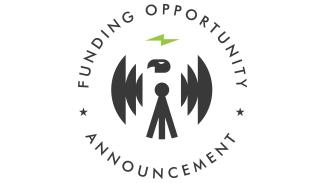WASHINGTON, D.C. — As part of President Biden’s Investing in America agenda, the U.S. Department of Energy (DOE) today announced $11 million for four selected projects that will help fight climate change by bolstering the nation’s carbon management industry. The projects, funded by the Bipartisan Infrastructure Law, will support the transport of carbon dioxide (CO2) captured from industrial and power generation facilities, as well as from legacy carbon dioxide emissions captured directly from the atmosphere, to locations for permanent geologic storage. This effort supports the development of a large-scale carbon management industry, key to achieving the Biden-Harris Administration’s historic climate and clean energy agenda.
“President Biden’s Investing in America Agenda is focused on expanding our nation’s carbon management capabilities to reduce harmful carbon pollution from our industrial and power sectors and fight climate change,” said Brad Crabtree, Assistant Secretary of Fossil Energy and Carbon Management. “Thanks to today’s investments, DOE continues to build out the infrastructure needed to safely transport and permanently store carbon dioxide emissions—resulting in cleaner air, more jobs, and healthier communities.”
The United States will likely need to capture and permanently store approximately 400–1,800 million metric tons of CO2 annually by 2050 to meet its net-zero commitments. To accommodate the expected rapid growth of the carbon capture and storage industry, we will need to significantly expand our CO2 transport network over the next decade to connect CO2 sources, such as industrial facilities and power plants, to geologic formations where captured CO2 emissions can be securely and permanently stored deep underground.
Carbon Dioxide Transport, Front-End Engineering and Design Project Selections
The four selected projects will support front-end engineering and design (FEED) studies for regional transport networks to safely transport captured CO2 from key sources to centralized locations for permanent storage. The projects will focus on carbon transport costs, transport network configurations, and technical and commercial considerations to enable industrial-scale deployment of carbon capture and storage.
- BKV dCarbon High West, LLC (Denver, Colorado) will conduct a FEED study for a system that will use barges to transport 2 million metric tons of CO2 per year to BKV’s carbon storage sites in southeastern Louisiana, considering emissions sources within 100 miles of the storage sites.
- Carbon Solutions, LLC (Okemos, Missouri) will conduct a FEED study for an open-access, 488-mile CO2 pipeline that can transport up to 32 million metric tons of CO2 per year across Montana, North Dakota, and Wyoming.
- Overseas Shipholding Group, Inc. (Tampa, Florida) will conduct a FEED study for a system that aims to transport 2 million metric tons of CO2 per year from a proposed multimodal hub at Port Tampa Bay to an existing tank terminal near Sunshine, Louisiana via articulated tug and barge.
- ZuCO2 Transport, LLC (Acampo, California) will conduct a FEED study for a common-carrier CO2 barge transport system to transport 1 million metric tons of CO2 per year from sources in Washington, Oregon, and California to a storage site in the San Joaquin Delta of California.
DOE’s National Energy Technology Laboratory (NETL), under the purview of DOE’s Office of Fossil Energy and Carbon Management (FECM), will manage the selected projects. A detailed list of the selected projects can be found here.
In alignment with the Biden-Harris Administration’s commitment to advance environmental justice and equity, the selected project teams were required, as part of their applications, to submit Community Benefits Plans to demonstrate meaningful engagement with and tangible benefits to the communities in which these projects will be located. These plans provide details on their commitments to community and labor engagement, quality job creation, diversity, equity, inclusion, and accessibility, and benefits to disadvantaged communities as part of the Justice40 Initiative. The FEED studies will include community engagement input in identifying alternative routes and applicable safety mitigation measures, where appropriate.
DOE’s Broader Advancements in Carbon Dioxide Transport and Storage
In addition to the projects announced today, FECM has committed an estimated $842 million since January 2021 for projects that advance research, development, and deployment of carbon dioxide transport and storage. This total includes $6 million in Bipartisan Infrastructure Law funding for two projects that will perform FEED studies for regional CO2 pipeline networks. This progress is essential to help drive economic development, technological innovation, and high-wage jobs as we build a clean energy and industrial economy.
FECM minimizes environmental and climate impacts of fossil fuels and industrial processes while working to achieve net-zero emissions across the U.S economy. Priority areas of technology work include carbon capture, carbon conversion, carbon dioxide removal, carbon dioxide transport and storage, hydrogen production with carbon management, methane emissions reduction, and critical minerals production. To learn more, visit the FECM website, sign up for FECM news announcements, and visit the NETL website.




